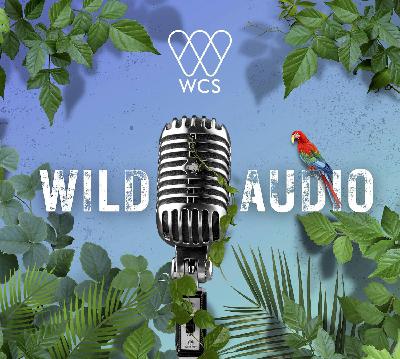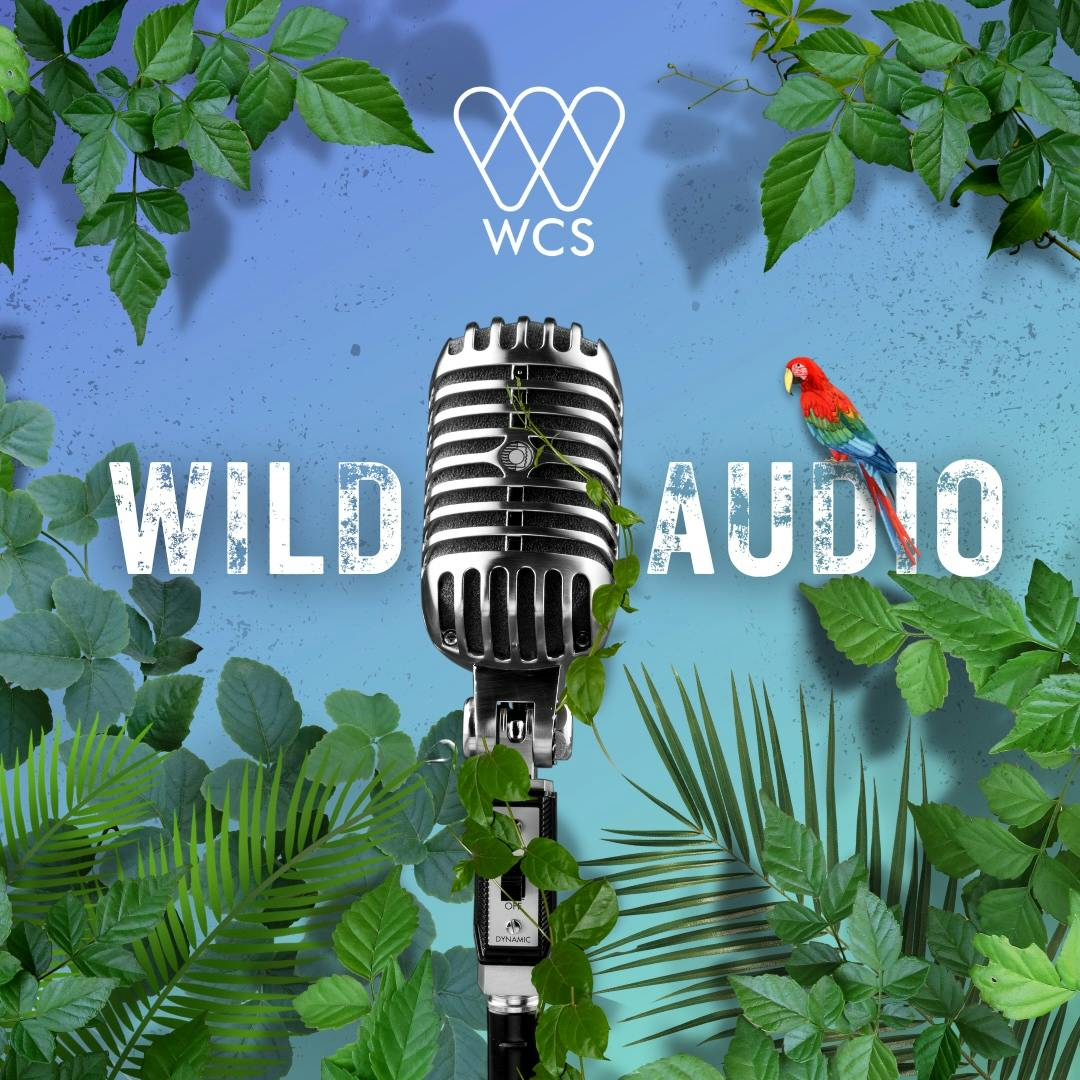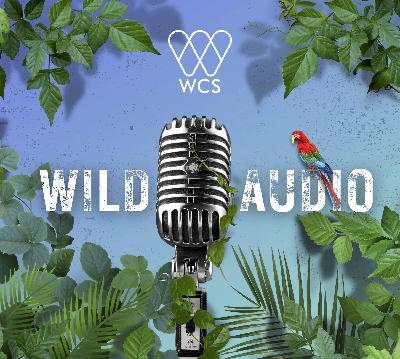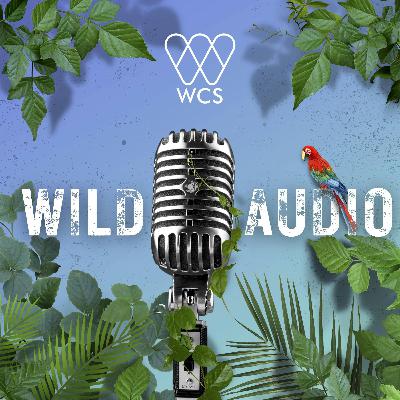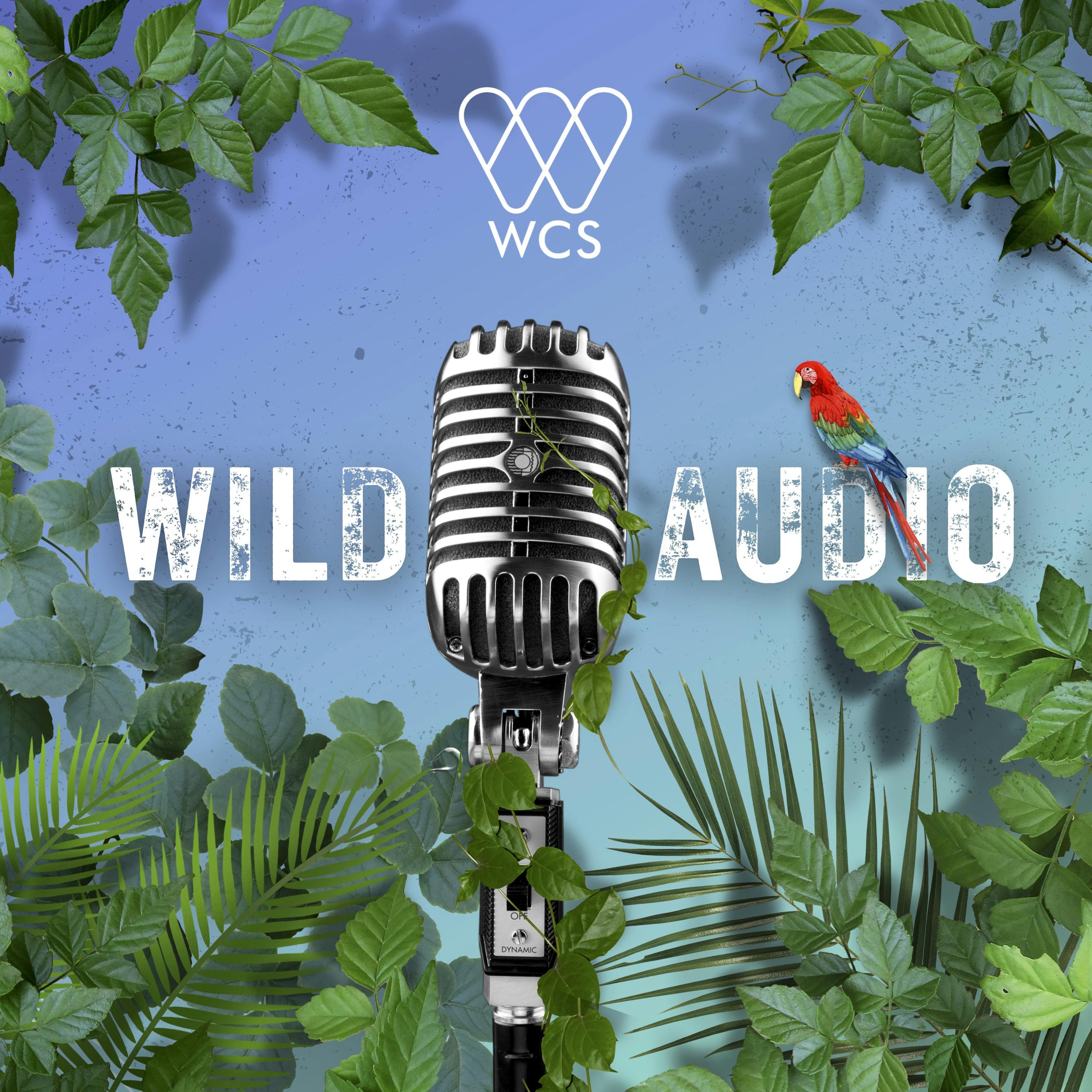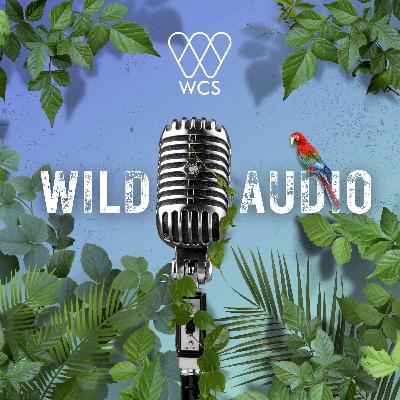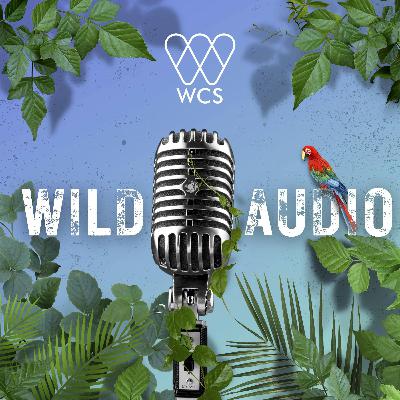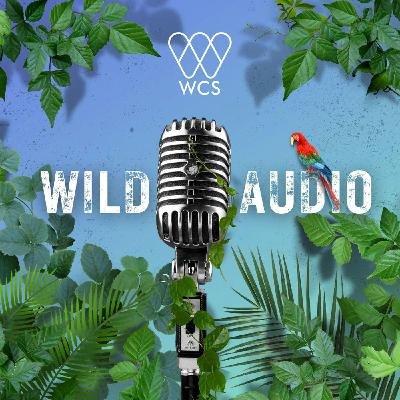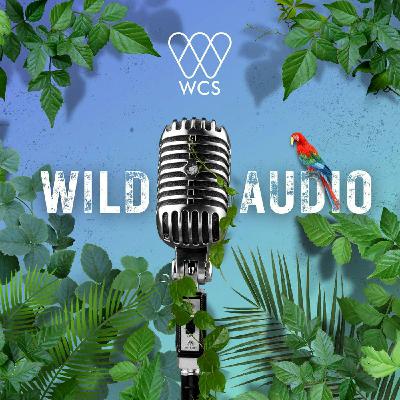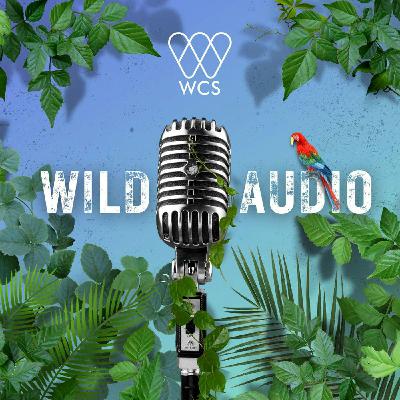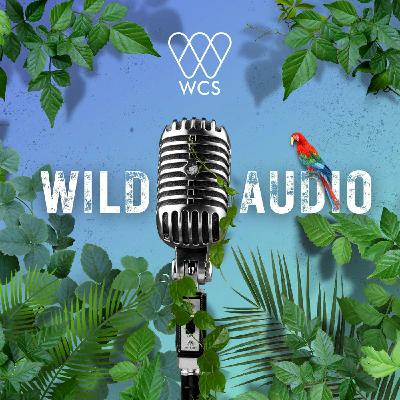Discover WCS Wild Audio
WCS Wild Audio

WCS Wild Audio
Author: Wildlife Conservation Society
Subscribed: 35Played: 580Subscribe
Share
© Copyright Wildlife Conservation Society
Description
Welcome to the award-winning WCS Wild Audio podcast, where you will find reported audio stories covering the latest news and newsmakers from the Wildlife Conservation Society's global conservation program, zoos and aquarium, and their many conservation partners. www.wcs.org/wcs-wild-audio
Credits
Nat Moss: Executive Producer, Co-Host, Reporter
Hannah Kaplan: Associate Producer, Co-Host, Reporter
Dan Rosen: Web Producer, Co-Host, Reporter
Social Media
Facebook: https://www.facebook.com/WCSWildAudio
Instagram: https://www.instagram.com/wcswildaudio/
X: https://twitter.com/WCSWildAudio
Threads: https://www.threads.net/@wcswildaudio
112 Episodes
Reverse
Coral reefs are facing unprecedented pressure from overfishing, pollution, and climate change. But scientists are finding that some reefs are more resilient than others — and that protecting those reefs could shape the future of coral conservation worldwide. The Wildlife Conservation Society has developed a new strategy focused on identifying and safeguarding those places of resilience.
Reporting: Nat Moss
Guest: Emily Darling
In Papua New Guinea’s Eastern Highlands, five clans have come together to formally protect 2,000 hectares of ancestral forest through the Yasina Conservation Deed. This landmark agreement shows how Indigenous communities can lead conservation, safeguarding biodiversity while preserving their cultural traditions.
Reporting: Hannah Kaplan
Guests: Harshad Hemant Karandikar, Bennie W Atigini
Every four years, the International Union for Conservation
of Nature, or IUCN, brings together governments, NGOs, scientists, and
Indigenous leaders at the World Conservation Congress. Soon, it will be convened in Abu Dhabi. The growing threat of the pet trade in terrestrial
wildlife is one of the important issues that will be addressed.
Reporting: Dan Rosen
Guest: Dr. Elizabeth Bennett
Guanacos—fleet-footed cousins of the llama—roam the windswept grasslands of South America in one of the world’s longest overland migrations. But fences, hunting, and competition with livestock are putting their survival at risk.
Ahead of the 2nd International Guanaco Day, WCS Argentina is joining forces with local communities and the government to secure vast migration corridors, promote sustainable livelihoods, and bring guanaco populations back from the brink.
From live—shearing innovations to landmark land protection, this story reveals how conservation is turning the tide for these resilient creatures—and why their future matters for ecosystems and people alike.
Reporting: Hannah Kaplan
Guests: Dr Andrés Novaro, Dr. Susan Lieberman
Recently, staff at WCS’s New York Aquarium got a call from the US Fish and Wildlife Service. The authorities had intercepted an illegal shipment of corals and they needed WCS’s help. When corals come into the country like this, they typically can’t be returned to the wild. So the Fish and Wildlife Service turns to accredited facilities like the New York Aquarium to care for the animals.
Reporting: Dan Rosen
Guests: Aaron Brett, Camilla Piechocki
Talented, passionate local conservation leaders are critical for the durable conservation of wildlife and wild places around the world. To address the need for them, WCS launched the Graduate Scholarship Program in 1996 to provide financial support for the highest quality, graduate-level academic training to promising conservationists.
Over its nearly 30 years, the program has awarded 163 scholarships to conservationists from 42 different countries to pursue advanced degrees. With those skills, recipients are able return home and make a significant impact on their countries.
They now lead conservation efforts in governments, universities, local organizations, and WCS itself—building lasting conservation capacity from within and delivering tangible conservation results on the ground.
Reporting: Dan Rosen
Guests: Denise Garcia, Richard Malonga, Peter Umunay
Participants from around the world have gathered in Nice this week for the third United Nations Oceans Conference. It’s an opportunity to assess the current state of marine conservation and seek ambitious new opportunities to achieve progress toward ocean protection. WCS was there with a big announcement to make.
Reporting: Nat Moss
Guests: Stacy Jupiter, Pamela Castillo
The 30x30 Ocean Accelerator is made possible through funding support from the Thomas L. Kempner, Jr. Foundation, Paul M. Angell Family Foundation, BlackRock, The Tiffany & Co. Foundation, the Shark Conservation Fund, and several other visionary private donors, with multilateral partners now engaged to expand its reach.
In today’s episode, we journey to the heart of the Amazon Basin—home to the largest freshwater system on Earth. These waterways don’t just support rich biodiversity—they’re a vital source of food and nutrition for millions across South America, where fish are often the most affordable and accessible source of protein.
But this life-sustaining resource is under threat. Mercury contamination, overfishing, and the pressures of a globalized food market are putting fish populations—and the health of the people who rely on them—at risk. In this episode, we explore how conservationists are working to reimagine food systems in the Amazon—blending traditional knowledge with science to protect rivers, restore fisheries, and ensure a healthy, sustainable future for communities and ecosystems alike.
Reporting: Hannah Kaplan
Guests: Silvia López Casas, Sebastian Heilpern
A leopard. A giant pangolin. A group of forest elephants. They can be almost impossible to spot in the wild. But in February, WCS and wildlife photographer Will Burrard-Lucas released a series of high definition camera trap photos of these species and more from the Republic of Congo’s Nouabalé-Ndoki National Park. The hope is that sharing these remarkable pictures of rarely seen animals in their natural environment will inspire people to protect them.
See some of the photos: https://www.wcs.org/get-involved/updates/unseen-rainforest
Reporting: Dan Rosen
Guest: Will Burrard-Lucas
For four decades, the Conservation Leadership Programme, or CLP, has been providing critical early career funding awards to emerging conservationists. Born out of a partnership between Birdlife International, Fauna & Flora, and the Wildlife Conservation Society, the CLP has opened the door countless scientists working across the globe in countries rich in biodiversity but often lacking resources for their protection. As the program turns 40, we checked in with a few alumni to hear how the program has helped them to advance in their journey to become conservation leaders.
Reporting: Nat Moss
Guests: Camila Kass, Jorge Parra, Deepshikha Sharma
As Earth Day turns 55 this year, it seemed like a good moment to reflect on WCS’s mission to protect wildlife and wild places. Why does the protection of biodiversity carry with it so many other benefits for people and the planet? What are the approaches that work and what are the challenges? And what can the average person do to make it a priority in their lives? WCS Wild Audio knew just the right person to ask.
Reporting: Nat Moss
Guest: Dr. Elizabeth Bennett
In Part 3 of our series featuring the inaugural REEL WILD New York Film Festival, which launches in New York City this week, we talk to the hosts of the popular television series Mutual of Omaha’s Wild Kingdom “Protecting the Wild.” They’ll be on hand for the screening of several of the show’s episodes in an exciting and inviting family-friendly program on Saturday, April 5.
Reporting: Nat Moss
Guests: Dr. Rae Wynn-Grant, Peter Gros
To learn more about the festival and purchase tickets, go to https://www.wcs.org/reelwild
In the second episode of our three-part series on WCS's REEL WILD New York Film Festival, we go behind the scenes to uncover the inspiration behind this inaugural event celebrating remarkable filmmakers and extraordinary wildlife stories from around the globe.
From Namibia’s resilient desert lions to a massive annual walrus gathering in the Russian Arctic, this year’s lineup aims not only to captivate audiences but also to spark meaningful conservation action. Hannah Kaplan has this report.
Get your tickets for The REEL WILD™ NEW YORK Film Festival: reelwild.org
Reporting: Hannah Kaplan
Guests: Natalie Cash, John Calvelli
This spring, the inaugural WCS-curated REEL WILD New York Film Festival comes to Manhattan. Taking place April 4-5, this two-day event showcases award-winning natural history films and offers a unique chance to hear directly from the filmmakers and experts behind the stories. In the first of a 3-part series on the festival, we look at one of those films, the 2022 Oscar-nominated documentary “Haulout,” which explores the impact of climate change on walrus habitat in the Arctic.
Reporting: Nat Moss
Guests: Evgenia Arbugaeva, Martin Robards, Jonathan Slaght, Natalie Cash
Learn more about the festival and purchase tickets at: https://www.wcs.org/reelwild.
[Parts of this episode originally aired in March 2023.]
The Bronx Zoo’s Herpetology Team cares for a number of venomous snakes at the zoo’s World of Reptiles. As professionals, they know what they’re doing. Just in case, though, the zoo team keeps antivenom on site and a thorough plan in place to address any potential emergencies. Fortunately, it hasn’t been needed any time in recent memory. Instead, that antivenom, and the team, are helping to save lives outside the zoo through an impactful partnership with nearby NYC Health and Hospitals–Jacobi.
Reporting: Dan Rosen
Guests: Kevin Torregrosa, Dr. Joshua Z. Silverberg
The khulan - a species of wild equid - is a true nomad, covering distances unmatched by any other land mammal. Yet, their survival in Mongolia’s harsh Gobi desert is a constant battle. Populations already strained by overhunting and harsh winters – exacerbated by climate change – are now facing a growing threat from rapid road and railway construction, which fragments the landscape and cuts them off from essential resources. Now, WCS is developing innovative solutions that benefit both this vital species and the local communities that share its habitat. WCS wishes to thank Cartier for Nature for their invaluable support of WCS Mongolia’s efforts with local communities. To learn more about Cartier for Nature visit cartierfornature.org.We also extend our deepest gratitude to Fondation Segré for their commitment to khulan conservation in Mongolia. To learn more about Fondation Segré, visit fondationsegre.org.Reporting: Hannah KaplanGuests: Buuveibaatar Bayarbaatar, Bayarmaa Chuluunbat, Batbayar Galtbalt
Highly pathogenic avian influenza is having an unprecedented and devastating impact on wildlife. We have the latest on its path and where it may be headed, including whether or not it could pose an even bigger threat to humans.Reporting: Dan RosenGuest: Dr. Christian Walzer
Rangers are the frontline guardians of conservation efforts, regularly putting their physical and mental health at risk to protect our planet. But they can't do it alone—they need more support and resources to stay safe and effective in their vital work. That’s where URSA, the Universal Ranger Support Alliance—which supports the International Ranger Federation and counts WCS among its members—steps in to ensure they get the backing they deserve. Visit wcs.org and ursa4rangers.org to learn more.Reporting: Hannah KaplanGuests: Alexa Montefiore, Rohit Singh, Yahaira Urbina
Roughly 90 percent of coral reefs globally face collapse by 2050 due to human activity. At the same time, close to a quarter of all marine life is found in coral reef ecosystems, which support some one billion of the world's population. Miamba Yetu is a creative new financing mechanism designed to help protect coral reefs off the coasts of Kenya and Tanzania that are resilient to climate change, while supporting the communities that depend on them. Reporting: Nat MossGuests: Fahd Al-Guthmy, Ray Victurine, Evelyn Namvua
In 2004, the investment bank and financial services firm Goldman Sachs came into possession of a group of distressed assets that included a 680,000-acre parcel of land at the bottom of South America. In Part 2 of our celebration of the 20th anniversary of the establishment of Chile’s Karukinka Natural Park, we dive into the exceptional story of how Goldman came to gift this pristine landscape to WCS for conservation. Reporting: Nat MossGuests: Bob Christie, John Calvelli, Larry Linden, Kent Redford, Steven Sanderson WCS wishes to acknowledge the important contributions of the following individuals to the successful transfer of land from Goldman Sachs to the Wildlife Conservation Society for the creation of the Karukinka Natural Park in Tierra del Fuego, Chile: Chris Austin, Kathy Barclay, John Bryan, Norman Christensen, Bob Christie, Dale Cooney, Brad D Gillman, Max Gitter, Salman Kahn, Nico Kogan, Adam Levine, Larry Linden, Kim Maxfield, John O’Leary, Kevin Padrick, Hank Paulson, Juan Robayo, John F.W. Rogers, Peter Rose, Jed Schaefer, Don Stern, Doug Tompkins, Kris Tompkins.This proud achievement could not have been accomplished without the extraordinary dedication and commitment of WCS staff at that time, including: John Calvelli, Claudio Campagna, Avecita Chicchón, Craig Groves, Graham Harris, Bill McKeown, Andrés Novaro, Kent Redford, John Robinson, Bárbara Saavedra, and Steven Sanderson, among others. The current WCS regional team, led by Martin Mendez, is sustaining and building on this legacy for the continued conservation of Karukinka.



